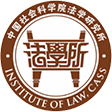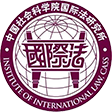 字号:
字号:小
中
大
Speech at the Opening Ceremony of the International Seminar on “Modern Times and Digital Regulation”
Dr. Chen Guoping, Deputy Director, Institute of Law, CASS
(University of Montreal, December 9, 2019)
Respected Professor Gautrais Vincent, dear colleagues,
Good Morning.
It is my great pleasure to lead the delegation of Institute of Law, Chinese Academy of Social Sciences (CASS) to attend the annual academic seminar of the Center of China Studies, which was jointly established by CASS and the University of Montreal. Since its establishment in 2017, the Center, with the active support from the Law Faculty of the University of Montreal, has organized several seminars, carried out different forms of exchange activities, and achieved fruitful results. Only last month, two scholars from the University of Montreal, Professor Michel Morin and Professor Jiao Jie, attended the International Seminar on the Chinese Civil Code at the CASS Institute of Law in Beijing. Here, on behalf of CASS Institute of Law, I would like to express our deep appreciation to the Law Faculty of the University of Montreal, especially to Professor Gautrais Vincent, for the efforts and the contributions they have made to the development of the Center and to the bilateral exchange between CASS Institute of Law and the University of Montreal.
The topic of this seminar, “Modern Times and Digital Regulation”, is one of a series of seminar topic agreed upon by CASS Institute of Law and the Law Faculty of the University of Montreal under the general topic of “Technology and Law”. This theme is of great significance because, today, science and technology, especially Internet and digital technology, are developing fast and affecting the international governance system, the state governance system, as well as the production and living of people all over the world as profoundly as never before.
In my opinion, the relationship between science̖̖̖、technology and law has the following three aspects: first, promoting the development of science and technology by means of law; second, promoting the rule of law civilization by means of science and technology; and third, solving new problems in the field of law resulting from the development of science and technology. The Chinese Government has made great efforts and achieved marked results in all the above three aspects.
With respect of promoting the development of science and technology by means of law, China has already constructed a system of law on science and technology with the Constitution as the key link. It consists of both legal systems of public law , such as those promoting the popularization and advancement of science and technology and the transformation of scientific and technological achievements, and legal systems of private law , such as those protecting intellectual property and other scientific and technological achievements. The 1993 Law on Scientific and Technological Progress plays an active role in safeguarding and promoting the healthy development of science and technology and the close combination of science ̖ technology and economy. In recent years, China has strengthened the legislation in the field of cyberspace and digitalization, and adopted a series of laws, including the Cybersecurity Law and the E-commerce Law, which have played an active role in the healthy development of cyberspace and the information industry in the country.
With respect to promoting the rule of law civilization through the application of scientific and technological achievements, the Chinese Government has attached great importance to utilizing the latest scientific and technological achievements to better realize social justice and fairness. For example, in legislation, legislative organs have used scientific means to collect relevant data and materials, including netizens’ legislative proposals, thereby making the provisions of law more scientific. In law enforcement, China has strengthened the informatization construction, and fully utilized the Internet technology to increase the level of standardization, transparency and efficiency of law enforcement, thereby enhancing the credibility and authority of law enforcement organs. In judicial practice, Chinese courts, using Internet technology, have established four major information disclosure platforms, namely those relating to trial process, live broadcast of court trials, adjudicative documents, and enforcement information, thereby propelling the development of judicial openness to an unprecedented level, both in breadth and in depth. Internet courts have also been established in Beijing, Shanghai, and Hangzhou to be responsible for the trial of certain type of cases, with the whole trial process conducted on the Internet. The development of science and technology, especially digital technology, is having a profound impact on the development of the rule of law in the whole country.
With respect to the solution of new problems in the field of law resulting from the development of science and technology, scientific and technological innovation, especially digitalization, while promoting economic and social development, has also brought many new challenges to the construction of the rule of law in China. Examples in this respect include the new challenges to the protection of privacy posed by big data technology, the disturbance of financial regulation by the application of blockchain technology, and the threat to the traditional ethics by the advancement of genetic technology. All these new problems need to be dealt with and solved through the application of the thinking and method of the rule of law .The legal departments and legal research institutions in China have already made some useful explorations and researches in this respect.
CASS Institute of Law, as a think tank of the Chinese Government on law-related decision-makings, attaches high importance to the research on legal issues in the field of science and technology, especially in the field of cyber and information technology: it has established the first research department on cyber and information law in China to carry out studies on legal issues relating to cyberspace, information technology and AI; both the chairman and the secretary-general of the Society for Cyber and Information Law under China Law Society are from CASS Institute of Law; in recent years, the cyber and information law research team of the Institute has produced many influential research results and played a positive role in state legislation and policy-making; in October this year, CASS Institute of Law organized the Forum on Data Governance and the Rule of Law under the World Internet Conference in Wuzhen, Zhejiang Province. The forum, which was sponsored by CASS, has attracted broad attention from scholars and experts both in China and abroad; and the Institute is currently planning to establish a new research department under it, name the Department of Science, Technology and Law, to strengthen the research in this field.
The University of Montreal, as a world-famous university, has an important influence throughout the world in the field of legal research, especially in researches on legal issues relating to digitalization and AI. We sincerely hope that the Center of China Studies, as a platform, will play an active role in strengthening the exchange and cooperation between CASS Institute of Law and the University of Montreal and we are confident that we will be able to learn a lot at today’s seminar from our Canadian colleagues, who are all famous scholars in the field of digital regulation.
Finally, I wish the seminar a great success.
Thank you.
中国处理科技与法律关系的做法与经验
——在“当今时代与数字规制”国际研讨会开幕式上的致辞
中国社会科学院法学研究所副所长 陈国平博士
(2019年12月9日,加拿大蒙特利尔大学)
尊敬的Gautrais Vincent教授,各位专家、学者:
上午好!
很高兴率领中国社科院法学研究所代表团到蒙特利尔参加中国社科院-蒙特利尔大学共建的中国研究中心的年度学术会议。中国研究中心2017年成立以来,在贵校法学院的大力支持下,组织了多次研讨会,开展了形式多样的交流活动,取得了丰硕成果。上个月,贵校Michel Morin教授和焦杰教授还参加了我们所在北京举办的民法典国际研讨会。在此,我谨代表我们所衷心感谢蒙大法学院,尤其是Gautrais Vincent教授等为中心工作和双边交流做出的努力和贡献!
本次会议的主题是“当今时代与数字规制(Modern Times and Digital Regulation)”,是双方以“科技与法”为主题的系列会议之一。这个会议主题很有意义。当今世界,全球科技特别是互联网技术快速发展,科学技术特别是数字技术从来没有像今天这样深刻影响着国际治理体系和国家治理体系,也从来没有像今天这样深刻影响着各国人民的生产和生活。
科技与法律的关系,我想主要体现在三个方面,一是用法律的手段促进科技进步,二是用科技手段推动法治文明,三是在法律领域解决因科技发展而产生的新的问题。在这三个方面中国政府都作出了巨大的努力,取得了明显的成效。
在用法律的手段促进科技进步方面。中国已经构建了一套以宪法为统领的科技法律制度体系。其中既有关于科技普及、科技进步、科技成果转化等公法性法律制度,也包括保护科技成果的知识产权法等私法性法律制度。1993年制定的《科技进步法》为保障和促进科学技术健康发展、促进科技与经济紧密结合发挥了积极作用。近年来中国加强了网络和数字化方面的立法,制定了《网络安全法》《电子商务法》等,为推动网络信息产业的健康发展发挥了积极作用。
在用科技成果推动法治文明方面。中国政府十分重视运用最新的科技成果来更好地实现社会的公平正义。比如,在立法方面,立法机关注意运用科技手段搜集数据资料包括网民的立法建议,使法律规定变得更加科学化。在执法方面,政府机关大力加强信息化建设,充分运用互联网技术提高执法的规范化、透明度和效率,从而提升了执法机关的公信力与权威性。在司法方面,中国法院通过运用互联网技术建成了审判流程、庭审直播、裁判文书、执行信息等四大公开平台,推动司法公开达到了前所未有的广度和深度。在北京、上海、杭州等地还建立了互联网法院,专门审理特定范围内的案件,审理的全部流程都在网上完成。科技发展尤其是数字化技术的发展对整个国家的法治都产生了深刻影响。
在法律领域解决因科技发展而产生的新的问题方面。科技创新尤其是数字化发展在促进经济社会发展的同时,也给法治建设带来新课题、新挑战。例如大数据技术对个人隐私保护提出了挑战,区块链技术的应用给金融监管带来了困扰,基因技术的进步存在着突破传统伦理道德的风险,等等。这些新的问题需要我们用法治的思维与法治的方式去应对和解决,中国的法律机关和法学研究部门为此作出了有益的探索和研究。
中国社科院法学研究所是中国政府关于与法律有关的决策的思想库。我们高度重视网络信息等科技领域方面的法律问题研究,在中国最早成立了专门的网络信息法研究部门,从事网络、信息和人工智能等方面的法律问题研究。中国法学会设立的全国性的网络与信息法学研究会的会长以及秘书处都在我们所。近年来我们的研究团队产出了许多有影响的科研成果,对国家的有关立法和政策制定发挥了积极的影响 。今年10月,世界互联网大会在中国浙江乌镇成功举办,其下设的法治分论坛由中国社科院主办、法学所承办,引起了国内外同行的广泛关注。我们还准备设立新的科技与法研究部门,以加强这方面的研究。
蒙特利尔大学是世界知名高校,贵校在法学领域,尤其是在与数字化、人工智能等有关的法律问题方面的研究在世界范围内都具有重要影响。我们愿意充分利用好中国研究中心这一平台,加强与贵校的交流与合作。今天出席这个会议的加方嘉宾都是这个领域的著名学者,我们相信一定会通过与各位的交流学习到很多东西。
最后预祝会议取得圆满成功!
谢谢大家!



